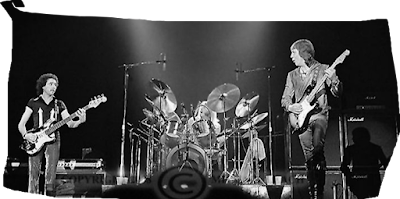Theoretically, the Blind Faith super group should have worked, as they brought a demonstrated array of talents to the fold around instrumental chops, vocal strength and in songwriting especially. Though commonly felt by many to be a failure at the time of release, the lone Blind Faith studio release yielded an impressive number of all time gems--” Can't Find My Way Home”, “Presence of the Lord”, 'Well All Right”. Even lesser material such as the structurally awkward “Had to Cry Today” and Ginger Baker's everybody-gets-a-solo excursion “Dow What You Like” provide sufficient joy. The Baker tune especially is worthwhile for Clapton's guitar solo, which to my ears has him revealing, maybe, a bit of influence from Mike Bloomfield's solo on “East West”. The reason for abandoning this project would seem to be the expected issues of drugs, egos, and most likely that their hearts just weren't into it. A shame, they could have been one of the best.
+++
John Lennon had a grudge against bandmate Paul McCartney , so he wrote a song about it , laying everything out except Sir McCartney's name. As an issue of disrespect, it's in a class by itself, but the howler of this whole enterprise centers around the most quoted lyric, “…the only thing you did was yesterday..." The longer view of the Beatles reveals PM's contributions to the creative surges was, in fact, profound, at which point it makes me consider the idea that McCartney would likely have been a pop star of some sort without Lennon. Lennon, always a raw dog who improved vastly as a tune smith , singer, and lyricist due to his association with McCartney, would likely have had a rougher go of it.



